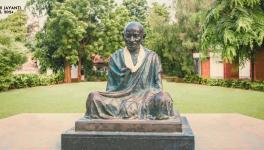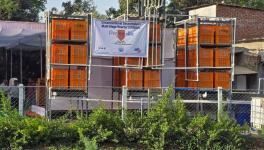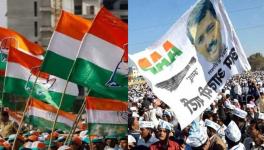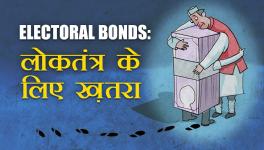Harassment of Australian Journalists Latest in Adani Tactic to Scare and Gag Critics
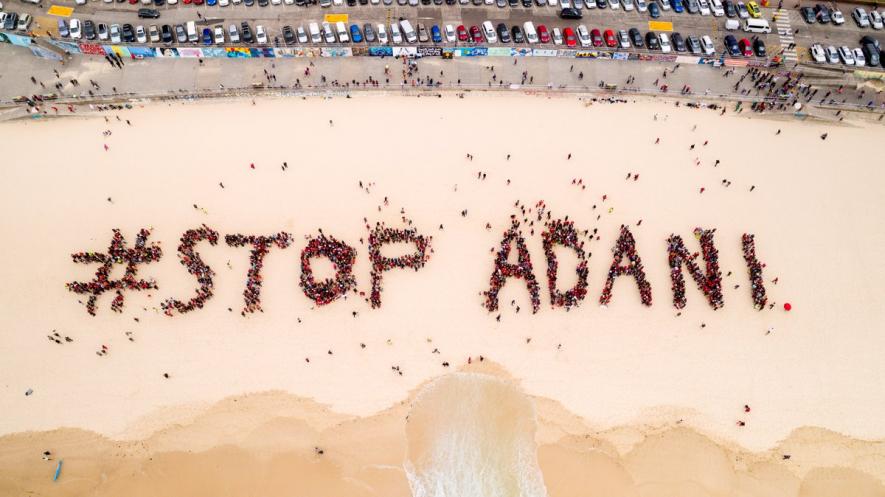
Picture Courtesy: Stop Adani Campaign
While Australia is up in arms against the Adani Group building the country’s largest coalmine in Queensland, the recent harassment of Aussie investigative journalists by police in Gujarat shows that the conglomerate continues with its intimidatory tactics.
Environmental groups in Australia have been opposing the proposed Carmichael coalmine in the Galilee Basin of Queensland, as it would destroy the Great Barrier Reef, push rare species of birds and animals into extinction, spoil the underground water used for farms, and cause other harms.
Most Australians are also opposed to the federal government giving a loan of 900 million Australian Dollars, which has been given conditional approval, for the project under the Northern Australian Infrastructure Facility.
But Adani and Queensland Premier Annastacia Palaszczuk claim that the coalmine, announced in 2010, would generate thousands of jobs for locals and provide other economic benefits.
On October 7, thousands of Australians across the country took to the streets to protest against the coalmine.
In the wake of years of opposition, a team from Australia’s national broadcasting network ABC spent a few months in India to investigate allegations of Adani’s financial and environmental crimes.
They were shooting for an ABC programme called Four Corners. The feature titled Digging into Adani was released in Australia on October 2, and includes some footage of the team being harassed by the police.
The ABC team, led by reporter Stephen Long, and their translator were in Mundra, where Adani has built the largest commercial port in the country, in Kutch district late August. They intended to dig up material on Adani’s violations of green norms in and around Mundra, charges of which the company is legally fighting in the Supreme Court.
However, after only a day in Mundra they “discovered the power of the company”, as the network states on its website, making no bones about conglomerate’s clout with the state machinery.
Police from the crime branch turned up at the hotel where the film crew was staying, the team was stopped from filming any further, questioned for hours, and forced to leave at 4am.
“While attempting to film and gather information about Adani's operations, the Four Corners team had their cameras shut down, their footage deleted and (they) were questioned for hours by police”, the network says.
The show features the preliminary questioning, and Stephen Long says on camera, “Our crime branch interrogation lasted on and off for about five hours – gradually ramping up as the police took calls and riding instructions from someone.”
The cops warned the journalists that they would be interrogated by officials from three intelligence agencies if they stayed in Mundra any further. The cops, however, did not mention Adani’s name.
“The team were left in no doubt that their investigations into the Indian company triggered the police action,” the ABC site says.
The Indian Express spoke to the Kutch (West) police, who confirmed that “foreign journalists were questioned for allegedly shooting in and around Mundra Port and Special Economic Zone of Adani Group late August”. The Kutch (West) SP said that the foreign journalists were “shooting vital installations without permission from authorities.”
Adani’s flexing of power to threaten and suppress critics is nothing new. In July, Adani’s lawyer sent a letter to Sameeksha Trust, publishers of reputed journal Economic and Political Weekly, threatening legal action for defamation over the publication of two articles investigating the financial misdeeds of the conglomerate, written by journalist Paranjoy Guha Thakurta who was EPW editor at the time. Thakurta was later forced to resign.
The company has a chequered past and present, with scores of controversies and criminal allegations, including price-rigging, tax-evasion, money laundering and bribery.
Get the latest reports & analysis with people's perspective on Protests, movements & deep analytical videos, discussions of the current affairs in your Telegram app. Subscribe to NewsClick's Telegram channel & get Real-Time updates on stories, as they get published on our website.













